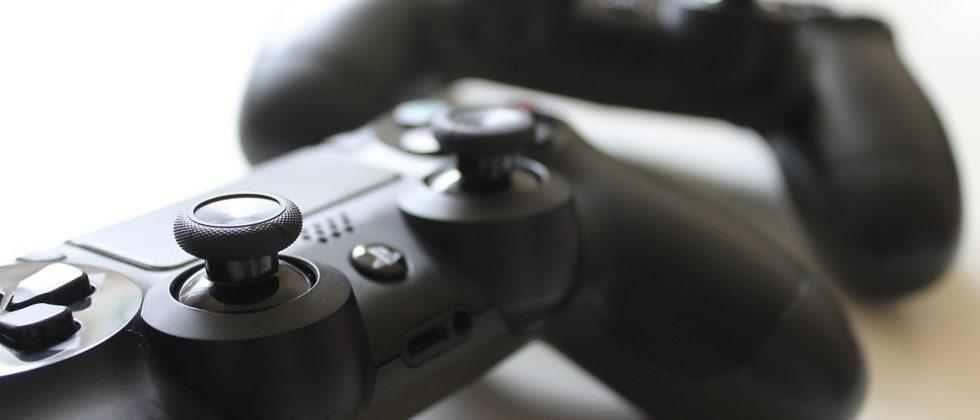Occasion good tidings. Assuming you are one of the world’s 3 billion video gamers, you definitely realize that gaming consoles are the ideal present—so wonderful that retailers are battling to stay aware of interest this Christmas season. Delays, also the worldwide semiconductor chip lack, have impacted the creation of essentially every advanced device. Some time before Black Friday, retailers needed to caution customers that many control center could rapidly sell out, leaving numerous customers disillusioned. Be that as it may, the universe of computer games faces more threatening international relations than store network interruptions.

Last year, gaming industry incomes were assessed at $159.3 billion, a 9.3 percent expansion more than 2019. The blast wasn’t on the grounds that the Covid pandemic constrained individuals to remain at home: Gaming studios are turning out progressively modern amusement. It should not shock anyone that Chinese behemoths, for example, Tencent have begun giving extensive consideration, particularly toward the West’s effective studios. Truth be told, they are purchasing a significant number of them. On only one day in July, Tencent obtained two gaming firms: one British and one Swedish.
That might seem like just business, yet numerous computer games incorporate solid political substance, regardless of whether their main mission is to engage players. Games highlight unlimited minor departure from battles among great and insidiousness. Obviously, many uphold Western qualities like majority rules government and free discourse—essentially on the grounds that their makers live in social orders where such things are underestimated.
China’s expanding revenue in computer games brings loads of money, however it’s terrible information for the worldwide gaming industry, especially with regards to creative liberty. “The Chinese organizations that put resources into or secure firms here are totally sensible. Yet, there’s anxiety in regards to the way that the Chinese government can drive them into collaboration under the 2017 National Intelligence Law,” said Per Stromback, the representative for the Swedish Games Industry, an exchange affiliation. The law comprehensively specifies that “any association or resident will support, help, and help out state knowledge work as indicated by law.”
Also assuming that they would rather not? The state can request it. That might clarify why the long-term backer of a contest for computer game makers retreated for this present year. A source near the coordinators of the opposition let me know that the support expected that the triumphant passage may affront Beijing and it would have rather not be considered responsible for the game’s substance—or the outcomes in the Chinese market. Computer game studios obtained by Chinese firms likewise feel strain to change their substance for Chinese qualities.
This spring, the Chinese government attempted a somewhat unpredictable technique to homogenize worldwide computer games. It presented a movement at the International Organization for Standardization (ISO), which controls merchandise from camera film to vehicle seats, to move toward computer games in a similar way. The application just concerned specialized principles: The ISO doesn’t worry about creative substance. In any case, Beijing plainly planned to persuade computer games to be treated as a specialized item rather than an imaginative one. That could prompt part associations, for example, China’s, utilizing the worldwide body to stop protests against computer games it objects to.
The Swedish Games Industry defied the move, utilizing its leverage acquired from Sweden’s outsized accomplishment on the lookout. “We said, ‘Computer games are workmanship. Directing them in similar way as lights would abridge the makers’ opportunity,'” Stromback told Foreign Policy. “Fruitful computer game product requires the right to speak freely of discourse.”
The Swedish Games Industry urged ISO individuals to cast a ballot against China’s movement for guideline. The movement was opposed, yet Beijing’s work caused tension across the business. One country’s industry affiliation even felt it reasonable to talk with a part organization’s Chinese proprietors prior to casting a ballot against the movement. In the mean time, the Committee on Foreign Investment in the United States, the U.S. controller that examines acquisitions on public safety grounds, had as of now dispatched an examination concerning Tencent’s takeover of Sumo, the British computer game studio it procured in July.
Indeed, even the individuals who don’t play computer games ought to be worried about tyrant legislatures looking into the business. Since most authorities in dictator nations aren’t actually gifted gamers, computer games are an uncommon corner of the web where individuals dwelling in those nations can communicate thoughts that could cause them problems disconnected. “Assuming that I were a despot, I’d need to keep the computer game industry under close control,” said Erik Robertson, a long-term computer game maker who drives the semiannual Nordic Game gathering.
Speeding up international showdown feels especially intense for the computer game industry, with its anecdotal conflicts, legends, and antagonists of various ethnicities. Beijing’s new limitations on how much time minors can spend playing computer games—part of a more extensive crackdown on innovation monsters—haven’t subverted Chinese firms’ worldwide power. Despite what is generally expected, the diminished playing time implies organizations can’t simply depend on the homegrown market. Be that as it may, the Chinese tech industry stays cautious not to disturb the public authority. In September, for instance, China’s gaming industry affiliation declared that its individuals would blacklist “politically destructive” content, among other such substance considered hurtful or improper.
Also Read: This Crypto Will Be the Ethereum of 2022




















Leave a Reply